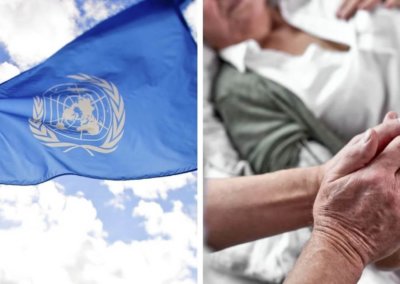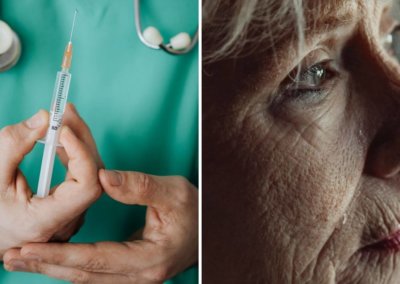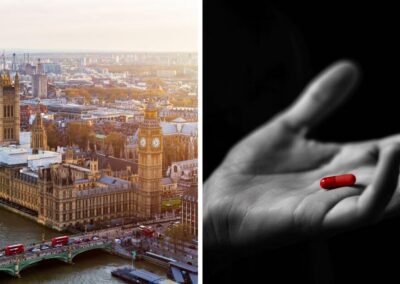A 23-year-old woman who survived the Brussels airport terror attack in 2016 has ended her life by legal euthanasia, owing to severe depression, post-traumatic stress disorder and psychiatric trauma following the incident.
Shanti De Corte was walking through the departure lounge of the Belgian airport Zaventem on 22nd March 2016, aged 17, when Islamic State terrorists detonated a bomb. Shanti managed to escape, without suffering any physical wounds, in a series of attacks that took the lives of 32 people and injured more than 300.
In the years following the attack, though, Shanti had suffered from bouts of severe depression and panic attacks from which she struggled to emerge. According to her school psychologist: “There are some students who react worse than others to traumatic events. And having interviewed her twice, I can tell you that Shanti De Corte was one of those fragile students”.
She suffered PTSD following the attack
Shanti was then referred to a psychiatric hospital in Antwerp for rehabilitation. During her time there, she was on a range of anti-depressants and attempted suicide on two occasions. First in 2018, following an altercation with another patient who sexually assaulted her, and then again in 2020.
Shanti recalled her experiences following the bombing on social media and spoke of her struggles dealing with her mental health.
In one post she wrote: “I get a few medications for breakfast. And up to 11 antidepressants a day. I couldn’t live without it. With all the medications I take, I feel like a ghost that can’t feel anything anymore. Maybe there were other solutions than medications”.
Shanti made a formal request for euthanasia and her life was ended on 7 May this year, after her request was approved by two psychiatrists. Euthanasia is legal in Belgium on the grounds of severe mental suffering which is thought to be unable to be alleviated.
However, the case may not yet be closed as Antwerp prosecutors began an investigation after receiving complaints from a neurologist at the UZC Brugman academic clinical hospital in Brussels who said the decision to euthanise Shanti “was made prematurely”.
Neurologist Paul Deltenre argued that there were still different modalities of care and treatment available to Shanti that were not tried.
Euthanasia is legal in Belgium for people with mental suffering
In 2021 in Belgium, 2,699 people were recorded as dying by assisted suicide or euthanasia, a 10% increase on the previous year of 2,444. Professor Benoit Beuselinck, Oncologist at the Leuven University Hospital Belgium, has explained how the euthanasia law was only supposed to be used rarely, in the most extreme cases, but that now it is used routinely and is one of the leading causes of death in Belgium.
Professor Beuselinck believes the actual number of cases of euthanasia is underreported. While most patients who die from euthanasia have cancer, it is becoming increasingly common for patients with non-terminal diseases to end their life in this way. The number of patients with non-terminal illnesses who die from euthanasia has more or less doubled in the last ten years and now accounts for about 17% of all euthanasia deaths.
Professor Beuselinck showed that management of pain was not the primary motivation behind requests for euthanasia but rather psychological and social suffering. This would include mental exhaustion, psychological/existential suffering, fear of future suffering and social suffering.
“Doctors then become the judge of the meaningfulness of life” and “as a solution for these problems, they have to administer death”, Professor Beuselinck said. “This is twice not their job”.
Right To Life UK spokesperson Catherine Robinson said: “This is a deeply tragic case of a young woman who has suffered so much, and it is beyond belief that she was given a lethal injection to deal with this trauma rather than the further psychological support that she clearly needed”.
“In Belgium, we can see clearly that the legalisation of euthanasia has sent a message to people like Shanti who are suffering that there is no hope. That death is the only way out. This is a deeply tragic view of life and suffering and it actively encourages this sort of thinking in people who are suffering the most. Shanti should not have died. She deserved better”.
“Here in the UK, our focus is doing everything we can as a society to prevent people who are suffering from severe mental health issues from committing suicide. In this case in Belgium, we see the opposite, where someone has been actively helped to end their life. Anyone reading this case must renew their efforts to ensure that we never have assisted suicide or euthanasia introduced to the United Kingdom”.












